A few years back we put together a comprehensive climate change library—fiction, nonfiction, poetry—to help readers grapple, both emotionally and practically, with the ongoing and imminent climate catastrophe we all face. We’re still happy with that collection of books, but in the interest of updating things we reached out to our favorite magazine of nature and culture, Orion, for their recent favorites. We’re thrilled to share that list with you below.
*

Max Liboiron, Pollution is Colonialism
(Duke University Press)
There are hunches you might have about the bad agents around whose interests the climate crisis appears to have aligned, but they’re rarely more than that. Liboiron here takes on the project of unearthing the discreet connections, establishing a heroic cause and effect that leads us to the depressingly simple origins of the horrors we all are facing.
–Sumanth Prabhaker
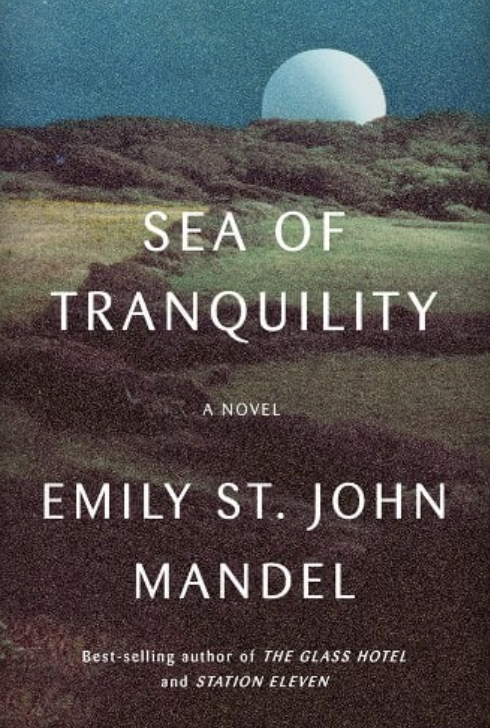
Emily St. John Mandel, Sea of Tranquility
(Alfred A. Knopf)
While the climate crisis is getting harder and harder to ignore, humanity’s general lack of urgency is still startling. Facts, especially these days, are crazily disputable but it’s hard to walk away from a good story. Mandel’s latest novel gets a lot of attention because of the prominence of a pandemic, but climate crisis is a partner in the apocalypse that drives people to colonies on the moon and beyond. What was it like to leave Earth? Like “slipping through the skin of a bubble,” and then “there was black space.” Feeling the depth of this loss, as Mandel allows one to do, might get more people to pay attention.
–Tara Rae Miner
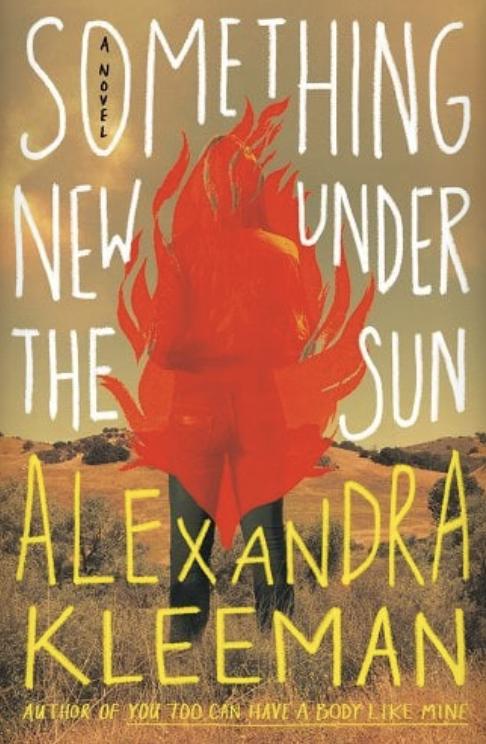
Alexandra Kleeman, Something New Under the Sun
(Hogarth)
Living through a time of accelerating climate change often feels like living in a dream: everything feels unsettled and unpredictable, as if anything at any time can happen. That feeling radiates from Kleeman’s latest, a novel about a writer who goes to Hollywood to oversee the film production of his book. He finds California in a state of ecological disaster, with drought and wildfire everywhere, problems exacerbated by a shady corporation selling synthetic water. While novels like Kleeman’s frequently get the facts of climate change right, they don’t always nail the structure of feeling of times like these. That’s where this book shines: it captures the uncanniness of the climate crisis in prose that thrills and startles.
–Amy Brady

Allegra Hyde, Eleutheria
(Vintage)
Too often, narratives about the climate crisis hinge upon an emotional dyad: hope vs. despair. And even more often, despair wins out. Hyde’s novel Eleutheria complicates such stories by centering on Willa, an optimist who joins a group of activists fighting climate change at a compound literally called Camp Hope, only to learn that life there isn’t going exactly as planned. Rather than lose hope, however, Willa decides to fight even harder for what she believes in. This is a novel for those looking for climate stories with a complex emotional heart that feels closer to real life.
–AB
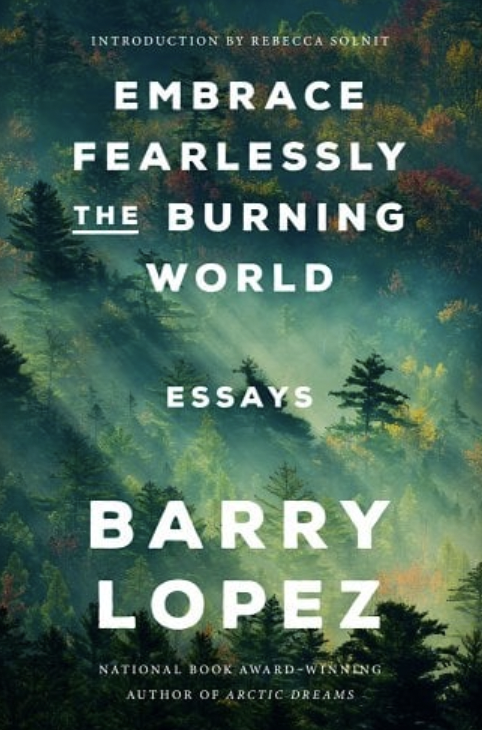
Barry Lopez, Embrace Fearlessly the Burning World
(Random House)
Barry Lopez spent his life exalting Earth’s diversity, reckoning with the dangers it faces, and advocating for its stewardship. Personal and political, tender and ferocious, this final collection includes previously unpublished works, some written just months before his death as his beloved homeplace crackled to ash in a raging wildfire. Lopez was a pathfinder. Is one still. While not explicitly about climate, Embrace Fearlessly the Burning World is more than a series of essays; it’s an instruction manual, an imperative. And really, can you imagine a better book title for these times, for this moment?
–Kathleen Yale
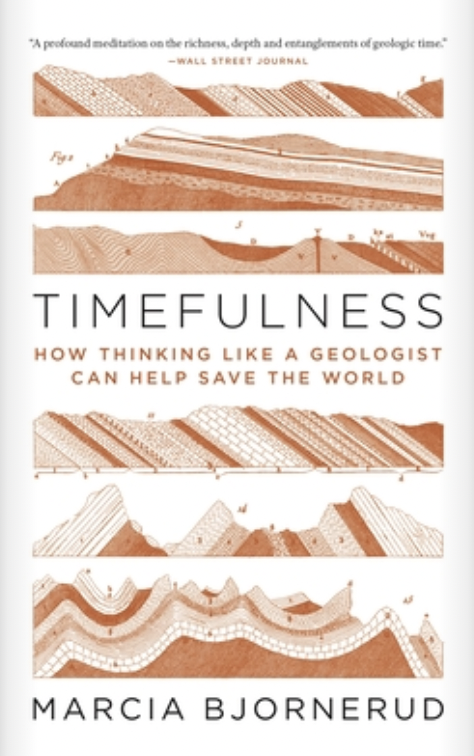
Marcia Bjornerud, Timelfulness: How Thinking Like a Geologist Can Help Save the World
(Princeton University Press)
Comprehending the climate crisis means understanding the gravity of its dizzying scale. Geologist Marcia Bjornerud guides readers through a meditation of Earth’s layers and Deep Time history—challenging us to see our personal and societal choices embedded in the longer, yet unfolding narrative beneath our feet. As humans choosing to live “timefully” between a vanished and a future landscape, she urges us to inhabit our miraculous and fleeting moment with courage.
–Natalie Middleton
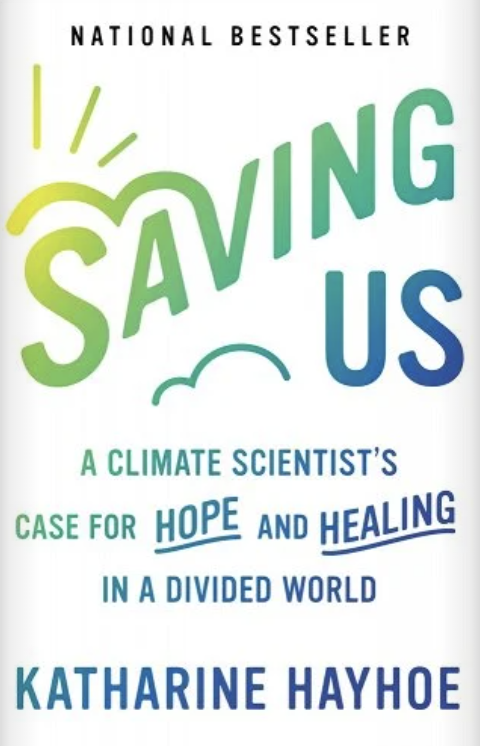
Katharine Hayhoe, Saving Us: A Climate Scientist’s Case for Hope and Healing in a Divided World
(One Signal Publishers)
Great societal shifts transform our world when people talk. Though the latest Yale climate communication survey found over 70 percent of Americans believe climate change is happening and 64 percent believe it is personally important, 67 percent say they rarely or never discuss it, even with friends and family. Why? Saving Us, by climate scientist and communicator Katharine Hayhoe, is a roadmap to bringing the climate crisis—and its very real solutions—into community conversations that galvanize action.
–NM
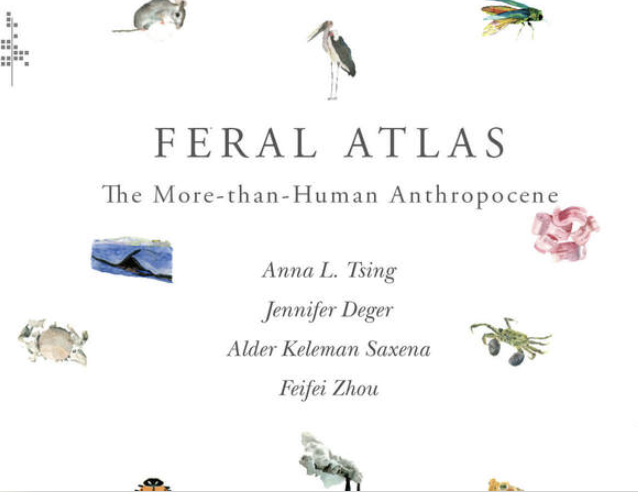
Anna Lowenhaupt Tsing, Jennifer Deger, Alder Keleman Saxena, and Feifei Zhou, Feral Atlas (Stanford University Press)
The origins of the Anthropocene are an entangled mess of dependencies, and the work of imagining their undoing can often feel impossible. How can we learn not to repeat the mistakes of the past if we can’t measure their impact? While not precisely a book, this digital museum of climate histories deserves placement here for its breadth and ambition of environmental scrutiny. And the convoluted form is rather appropriate: an entangled mess needs an entangled calculus to see with clarity.
–SB
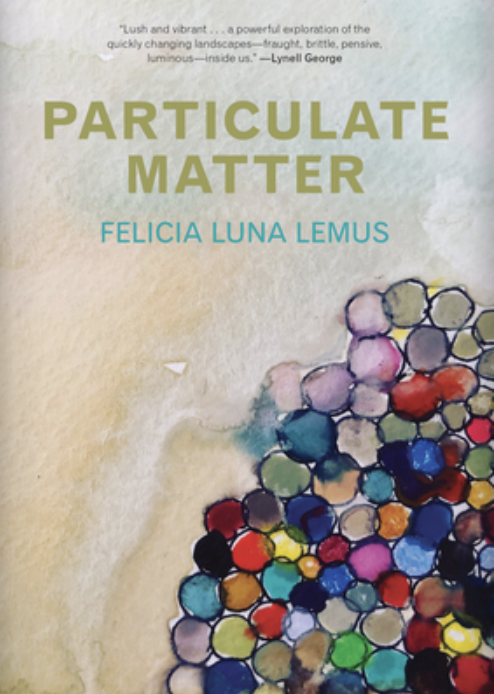
Felicia Luna Lemus, Particulate Matter
(Akashic Books)
Particulate Matter is a memoir as much about love as disaster. It follows one year of Lemus’s life, when record-setting fires in California strained the author’s lungs and her marriage to acclaimed novelist Nina Revoyr. As the couple seeks refuge from the particulate matter filling the air of their home, they must deal also with the casual racism and homophobia that limit their options. Amidst so much ash and hate, however, love shines, brightening a path forward and reminding readers that no crisis is unsurmountable.
–AB
________________________
You can visit Orion Magazine here, and subscribe here.



